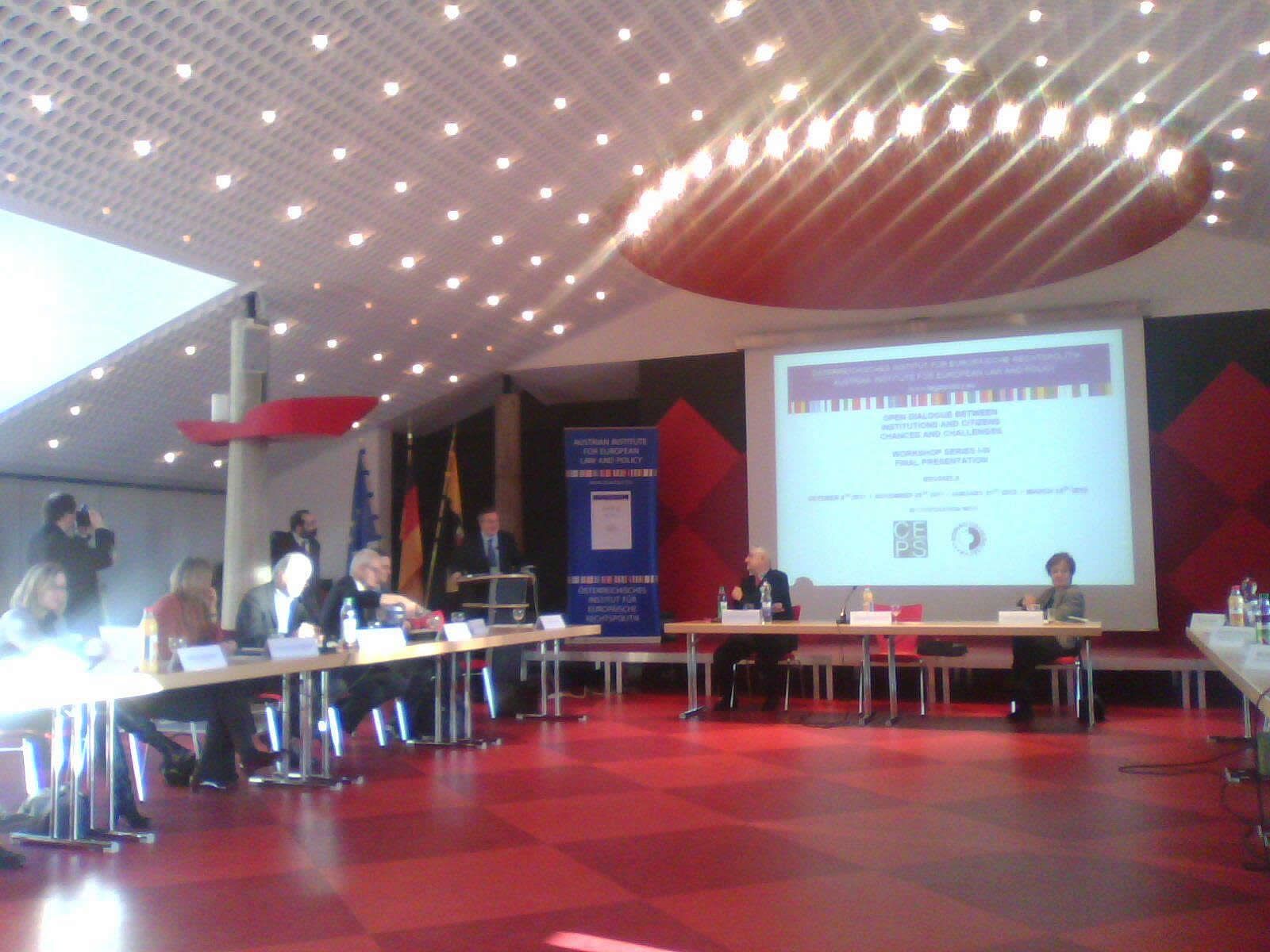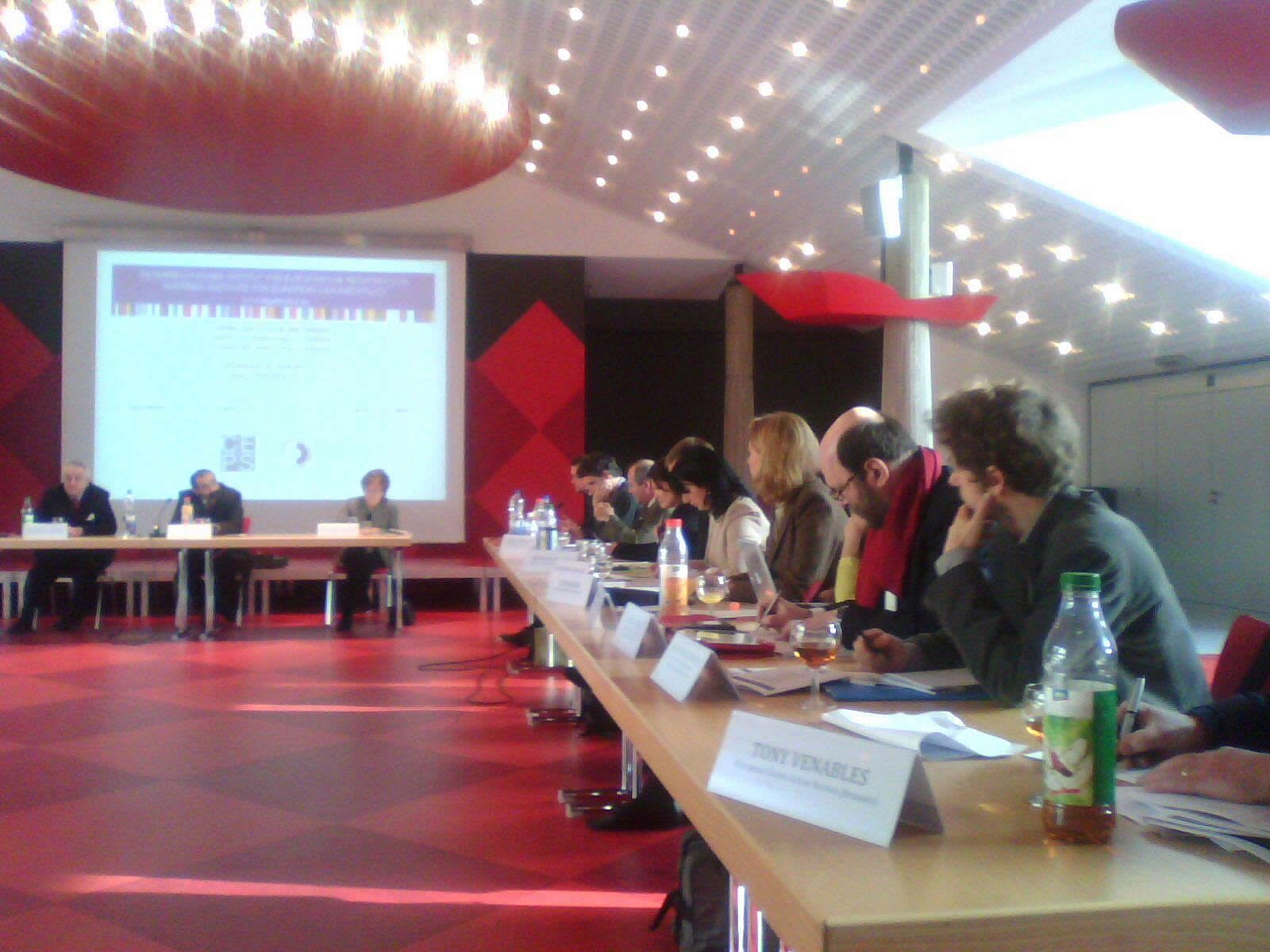The three workshops, composed of dialogues with the European Economic and Social Committee, the Committee of Regions, Related Interest Groups, Non-governmental and Religious / Philosophical Organisations and non-organized Citizens, were followed by a final
presentation. During the final event 14 March 2012 on 'The Way Forward', the European Ombudsman P.N. Diamandouros hold a keynote speech. Below the conclusion:
'Let me conclude. I think we can all agree that important mechanisms for the dialogue between civil society and citizens on the one hand, and the EU institutions on the other hand are already in place. Many of them could, however, be used more, such as Parliament's Petitions Committee, the Ombudsman's services, or the possibility to lodge infringement complaints with the Commission. All of these procedures are open to every European citizen.
The Lisbon Treaty and the Charter of Fundamental Rights have added more provisions to increase dialogue and citizens' participation, such as Article 11(2), the European Citizens' Initiative, and enhanced openness and transparency in the EU decision-making process. Most of these mechanisms are already being used, but mainly by those civil society representatives who are involved in EU policies and know the complex decision making procedures.
However, we will not get a stronger involvement of European civil society at the local, regional, and national levels if we do not manage to find better ways to inform the European public about their existence.
Without a joint effort, by the EU institutions on the one hand and civil society organisations on the other, we will, not be able to achieve more citizens' involvement. If we fail, it would have a very negative effect on the already wide gap between the EU and its citizens. I think this series of events has pointed to many ways in which the dialogue could be improved and where the concrete problems are. It is now the responsibility of us all to live up to the criticism, praise, suggestions, and innovative ideas which resulted from these fruitful debates and to turn them into an effective reality'.
The director of the Austrian Institute closed the last event with: 'be not a patient audience, bring the open dialogue to make it a movement'. CEPS commented: 'the dialogue focused on the interpretation of Art. 11(2) TEU, concluding that
mutual collaboration is necessary to further improve the communication
between institutions and civil society. Marco Incerti (CEPS) argued that
the institutions have already implemented mechanisms aimed at engaging
with civil society. EU bodies are also exploring the possibilities offered
by new technologies and social media. However, Incerti emphasised the
need to raise awareness of EU matters among citizens as a precondition for
an effective and meaningful dialogue. This view was shared by Margaritis
Schinas, Deputy Director of the Bureau of European Policy Advisors, who
also pointed out that the institutions had been developing rules to interact
with civil society well before the Lisbon Treaty.
Finally, the European Ombudsman
Nikiforos Diamandouros considered that the new instruments
could improve transparency and visibility, noting that the European Council
in particular was not pro-active in this area. As an example, he referred
to a recent Eurobarometer survey showing that 70% of EU citizens do not
feel sufficiently informed. However, Diamandouros noted that the task of
informing citizens cannot fall on the institutions alone: civil society has
to play an intermediary role there. Finally, he welcomed the European
Citizens’ initiative as a positive development, but cautioned against raising
high expectations'. |



|





